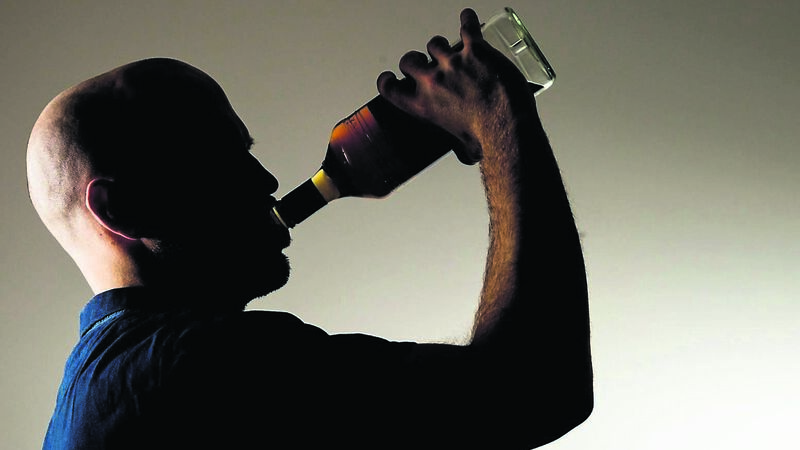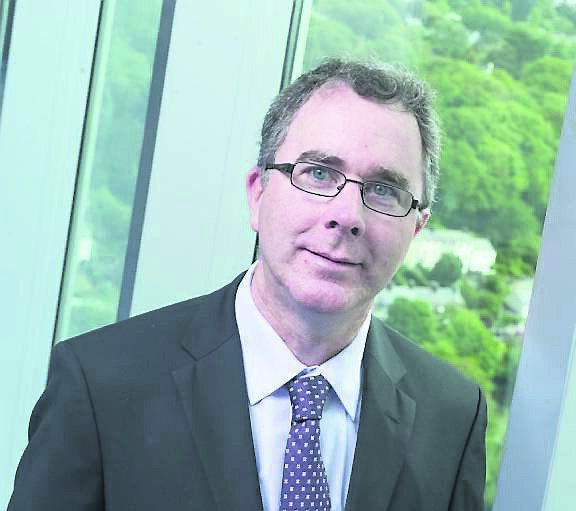Concern over impact of Sale of Alcohol Bill

MEMBERS of a drug and alcohol taskforce set up to tackle addiction in Cork are busy with a range of different projects, but are concerned about the potential impact of the Government’s Sale of Alcohol Bill. Picture: PA
MEMBERS of a drug and alcohol taskforce set up to tackle addiction in Cork are busy with a range of different projects, but are concerned about the potential impact of the Government’s Sale of Alcohol Bill.
The level of drug and alcohol addiction across Cork was highlighted in a report published recently by the HSE’s Southern Regional Drug and Alcohol Task Force (SRDATF).
David Lane is co-ordinator of the SRDATF, established in 2003 to address substance misuse. Both the SRDATF — which covers Cork county and Kerry — and its sister organisation in the city, Cork Local Drug and Alcohol Task Force, have seen “massive changes” over the past few years, Mr Lane told The Echo.
They have established six community hubs, two in the city for both the northside and southside, as well as hubs for East, North, and West Cork, and Kerry.
“There’s been a lot of work done over the past two and half years, and a lot of re-organisation of services, and there’s been a lot of investment in services,” said Mr Lane.
New appointments include a co-ordinator responsible for supporting families having to deal with drug deaths and related intimidation. A family support co-ordinator works with families across Cork and Kerry, while a full-time rehabilitation co-ordinator has been re-appointed.
The taskforce is setting up a post-acute stabilisation unit, an eight-bed unit which will cover the southwest of the country.
“We have approval for 21 posts for that. That’s all coming on stream this year,” said Mr Lane.
Recently, a team visited Portugal to examine a drug injection unit, with the aim of establishing a similar unit in Cork City.
More research needs to be done on providing a medically supervised injecting facility for Cork, Mr Lane said.
“The bottom line for us is that it will save lives. It will also serve a public good as well, in terms of reducing the visibility of public injecting in the city. It will reduce drug litter problems. It will reduce the potential for blood-borne infections being passed among injecting drug users. It will make a big difference in overdose situations that arise in the city,” said Mr Lane.
Dublin has planning permission for such a facility.
“We will learn from developments in Dublin over the coming months,” added Mr Lane.
Learning from the covid era, the team can now provide “blended services” where some services can be delivered online, so people do not have to travel long distances.
“Our investment in IT, and the ability to conduct interventions online has been hugely beneficial for us,” said Mr Lane.
Mr Lane said the Public Health Alcohol Act has been a “really important piece of legislation in terms of reducing harms around alcohol misuse in Cork but also nationally”.
However, he says the Sale of Alcohol Bill, is “almost contradictory” to the Public Health Alcohol Act, as it proposes extending opening hours for licensed premises, while reducing the bar for applying for licences.
“We’re really worried about an increasing number of outlets, in terms of premises selling alcohol, and increased hours. They are all going to lead in one direction. That’s one of the big tickets items for us in the two taskforces,” he said.
Kate Gibney is one of the authors of the SRDATF report and she also raised concerns about the Sale of Alcohol Bill, making its way through the Oireachtas. The legislation concerns the availability of alcohol, its marketing, and when and where alcohol can be sold.
“For us across the services, alcohol will always be the biggest issue,” said Ms Gibney. Under the bill, some pubs and clubs will be able to remain open for longer. Ms Gibney said this runs counter to what the SRDATF has been lobbying for.

If it passes, it means that clubs can serve until 5am and stay open until 6am. Bars would be allowed to stay open until 3.30am.
“That to me seems completely counterproductive in terms of what we’re trying to do. We’re trying to reduce alcohol-related harm,” she said.
The Government is bringing in some “really good evidence-based measures” while on the other hand, it is introducing measures to increase availability, added Ms Gibney, stating it can appear that the departments are at odds in what they are trying to achieve.
When asked if there has been an increase in demand for addiction services since the covid-19 pandemic, Ms Gibney said: “Our services are always incredibly busy. I think over the next number of years that we will see the impact of covid. Consultants are reporting that more patients are presenting with stomach problems due to increased intake of alcohol during covid.
“Ever so slowly, we will see the consequences of us all being locked indoors for the bones of 24 months,” she added. “I think it will be over the next number of years. I think people’s mental health deteriorated, and some people used alcohol a lot more who wouldn’t have previously.”
There has been a decrease in younger people accessing SRDATF services, and Ms Gibney said it is unclear why this has happened but “it’s something we’ve all noticed recently”.
Funding is the main challenge for drug and alcohol services.
“We have a small budget but we cover a a massive area,” she said. “Trying to provide services in the most remote areas of Kerry or West Cork or North Cork can be a real challenge for us.
“We have outreach clinics across Cork county and Kerry, in very rural areas which wouldn’t have a huge amount of services. Loneliness is a massive one for people, that loss of connection,” she added.
“Something as simple as getting to and from an appointment in rural Kerry could be hours. That’s not something we have to consider in the city.”
SRDATF has obtained several buses for two of the more isolated hubs.
The SRDATF team’s work at the moment includes lobbying on the Sale of Alcohol Bill, trying to deliver services online to users in rural areas, assisting Ukrainians in provision centres who have issues with drugs and alcohol, and developing new schemes, added Ms Gibney.
- Information on how to access addiction services can be found at srdatf.ie or by calling 021 4930100.










 App?
App?





